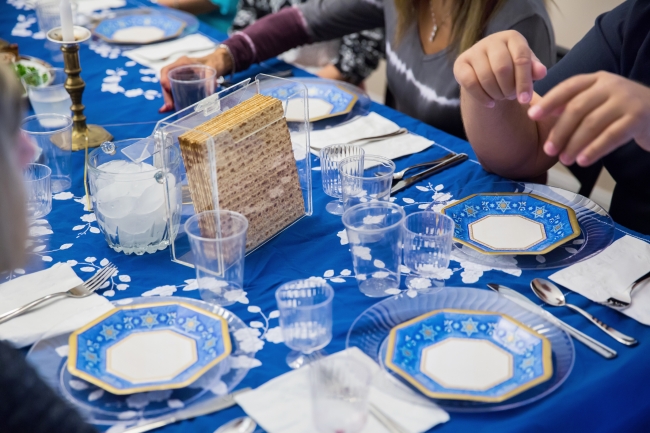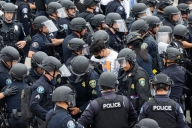You have /5 articles left.
Sign up for a free account or log in.

JodiJacobson/iStock/Getty Images Plus
College presidents and administrators who join their Jewish students at Passover Seders today should be welcomed warmly at the table. They should also be encouraged to pay attention to one of the archetypical characters in the Seder liturgy who can offer unexpected lessons this year: the child who does not even know how to ask a question.
Too many campuses are turning their students into this intellectually stunted child. He returns to our Seder table year after year, never knowing enough to pose the types of questions that his three brothers —wise, wicked, and even simple—ask in the liturgy about oppression, freedom and history.
As a scholar of Israeli history who has been disinvited from multiple campuses and had my remarks pre-vetted by academic groups over the past few months, I welcome Passover as a moment to hit reset and create an environment where students can ask away, even about ideas they hate and with which they adamantly disagree.
I am not proposing that universities only churn out the types of students I’d be tempted to call “wise” because they draw the same conclusions as me about Oct. 7, the Israel-Hamas War, or growing antisemitism. I am thrilled to address basic questions from those who are just beginning to explore difficult topics. And I’ve spent my career fielding confrontational and probing questions from hostile colleagues and students.
But today’s students will never reach that point if campuses aren’t open to a range of ideas. On the most controversial foreign policy question of the moment, that means letting progressive students hear from those who support Israel’s right to exist and who defend force as a tool to free the Israeli hostages and root out Hamas terrorists.
At University of California, Berkeley this year, protesters shut down a speech by Israeli libertarian lawyer Ran Bar-Yoshafat, breaking windows and a door to make clear that his voice was not welcome. Down the road at San José State University, a visiting professor of Jewish Studies was cut short from finishing a lecture titled “Constructing a Just Solution: Where Israelis and Palestinians Go From Here.”
It’s not just protesting students—but also administrators and faculty—who are ending the conversation before it begins. If you need proof, look at my email inbox.
Recently, three professors at a Roman Catholic university in the Northeast invited me to speak on Zionisms and how the concept is perceived today on campus, before they had to disinvite me due to disagreements over hosting me in what would have been the sponsoring department. (I am withholding the names to protect my supportive colleagues from professional backlash because, yes, that is a real consequence in this day and age.)
In another decision dripping with unintended irony, a public university chose not to follow through on its invitation for me to speak at an educational program about the Holocaust when they realized I’d be talking about current expressions of antisemitism as well as historic antisemitism.
Administrators see what’s happening nationally and are concerned about protesters disrupting my remarks or turning their ire on the university itself if they allow me to show up. But if these campus leaders think they are serving those students’ needs, they are very wrong.
They are telling the students they won’t get the chance to take the microphone and question why I am a Zionist. They won’t get to ask me why I don’t condemn the concept of “colonialism” by Jews in the territory of Israel, or challenge me about the definition of apartheid. Institutions of higher education have decided to privilege “safe spaces” rather than cultivate “brave spaces.”
In contrast, the college presidents who attend campus Seders will hear some of their students asking provocative questions around the table. They may ask why they face so much antisemitism, what are the moral limits to Israeli power, or even whether we should view the hostages held by Hamas, and the Palestinian and Iranian people, as today’s enslaved communities.
Asking such questions is central to Passover and Jewish tradition. It dates back to the Torah, where Abraham and Moses challenged, pushed and cajoled God. Such openness has also been rooted in Western thought, higher education and liberalism for centuries.
But that tradition will only live on if universities allow students to hear uncomfortable lectures, ask contentious questions and develop the tools they need to think for themselves. Otherwise, an entire generation risks becoming the intellectually stunted child who does not even know how to ask.







.jpg?itok=YusUVfky)
